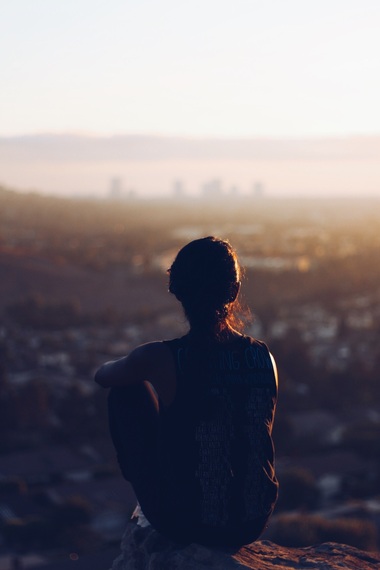The future is unpredictable. But we can learn from the past. And if the past gives us any indication about the future, then we have reason to be optimistic. We have seen an enormous leap in prosperity around the world since the early 1990s, thanks to advancements in technology and commerce and due to an increasing commitment to openness. Increasing transparency and a growing number of engaged people in the business and not-for-profit worlds have led to the recent emergence of a global movement, "Generation S". Emboldened by a successful Paris Climate Summit, many thousands of people are now searching for more responsible and sustainable ways for markets to deliver what societies expect.
Yet, despite progress made and despite our knowledge and capabilities, human suffering remains widespread and can still be found everywhere. The United Nations Refugee Agency (UNHCR) estimates that a record number of over sixty million people have been forced to flee from their homes because of conflict or persecution in 2015. In a global context, that means that one person in every 122 has been forced to flee their home this past year.
The International Labour Organization (ILO) estimates that about twenty-one million people are victims of forced labor, many of them children who often suffer unimaginable cruelty and exploitation. Over seventy countries suffer from systemic corruption, and oligarchic power abuse through finance and other means appears to be spreading in the rich and poor world alike, leading in turn to rising inequality and exclusion which brews discontent and conflict. Furthermore, the rise of religious fundamentalism and xenophobic populist movements on both sides of the Atlantic seem only to erode basic social values, ignoring lessons of history.
The ability to shape a brighter global future is entirely in our hands. It is easy to disengage and to point the finger at others. And surely, there is much to be done on the macro policy front to right the wrongs. But before we call on others to make changes, we must acknowledge a basic truth: fear, hatred, greed and violence are all part of the common human heritage. We are capable of doing horrible things to ourselves and to others, and we all have our individual sphere of influence where our own behavior impacts others. Indeed, human suffering is mostly man-made.
A personal journey to overcome the dark side of our heritage may take many forms. For some it is the search for rationality in its broadest sense, the search for a new "epic of sufficient impact, simplicity, and fascination to compete with the ancient stories that give meaning to people's lives", as the writer Ian McEwan put it. The global landscape post-COP21 may create such an epic where smart solutions facilitate a new lifestyle that is both green and clean.
For others, religion may offer the right entry point to the journey. And make no mistake, all major religions share universal principles of humanity as scholars have long recognized. Namely, the Golden Rule or ethic of reciprocity, and a commitment to non-violence, fairness, honesty and compassion.
Of course, living by such principles is not an easy undertaking. Our own weaknesses tempt us at every corner, and even if we understand the basic meaning of good principles, we have to relearn them again and again through life's seasons. In a world where we increasingly depend on each other, we need to rediscover that what connects us is stronger than what divides us. We need to understand and face the past in order to see the future with clarity, and we must not be silent where wrongdoing is evident. We must realize that we have the power to shape the future we want through our creativity and entrepreneurial undertakings. As Pogo, the central character of a long-running daily comic strip running from 1948 to 1975 put it: "We have met the enemy. And he is us".
But in 2016, things can be different. Like Pogo, we have met the enemy and it is indeed still us. But we know how to beat him, if we try hard enough.
Georg Kell
Vice Chairman of Arabesque Partners and founder of the United Nations Global Compact
